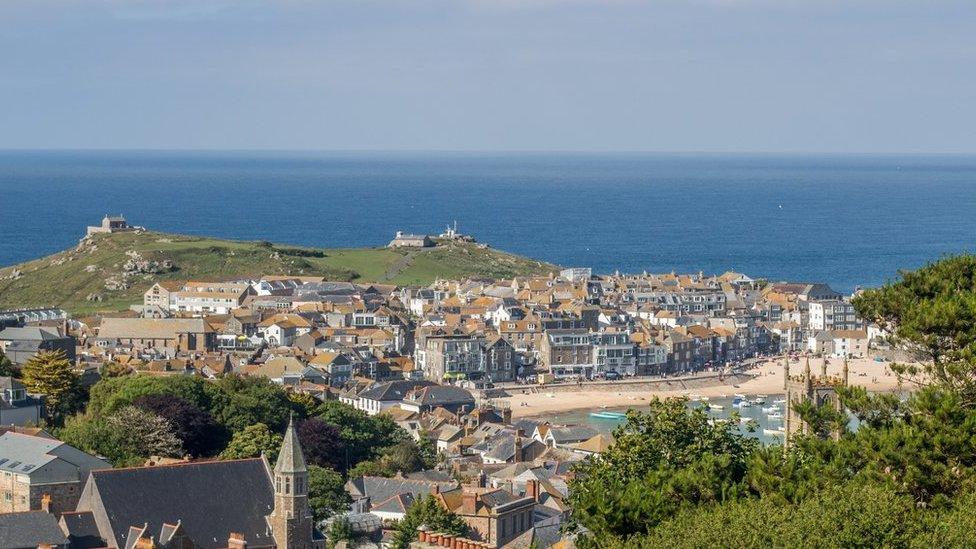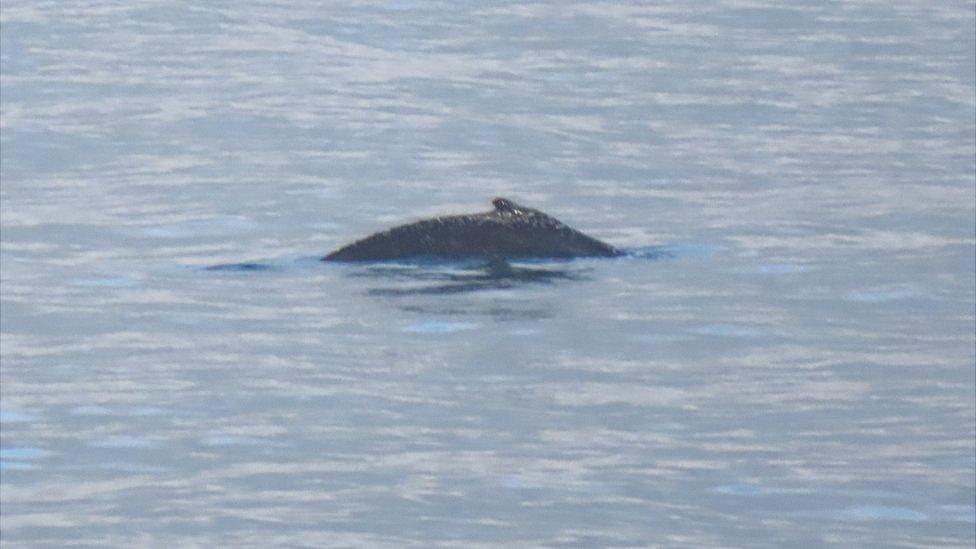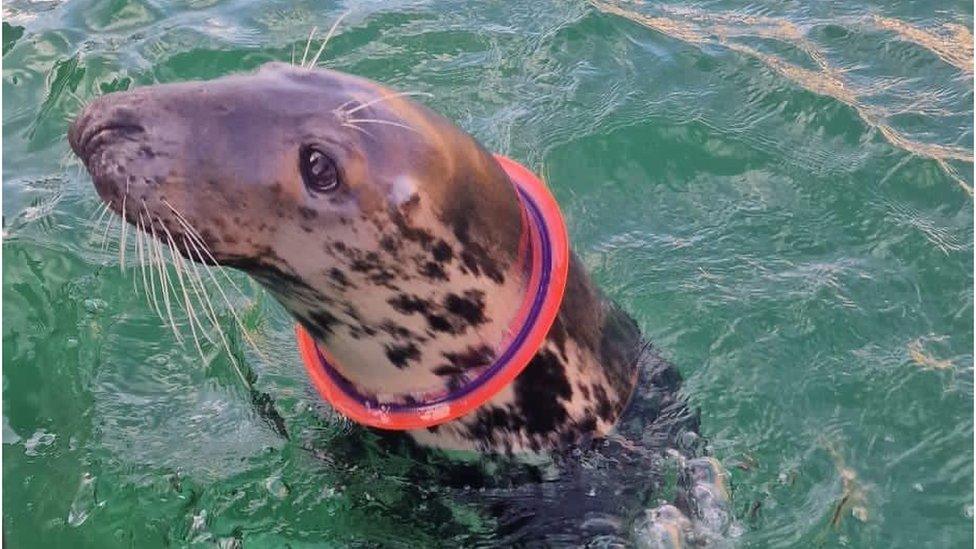St Ives Bay carbon capture trial 'very low risk' - report
- Published

The Environment Agency (EA) is yet to decide whether the trial will go ahead
Plans to add magnesium hydroxide to the sea at St Ives Bay in a bid to combat climate change are "very low risk", according to an independent review.
Planetary Technologies and South West Water want to carry out a carbon sequestration trial.
They want to remove carbon dioxide from the atmosphere and lock it in the sea by adding the alkaline mineral.
The independent review of the plans was carried out by the Water Research Centre (WRc).
The Environment Agency (EA) is yet to decide whether the trial will go ahead.
It would involve magnesium hydroxide being added into the treated wastewater outlet pipe at Hayle Waste Water Treatment Works.
The wastewater pipe would transport the magnesium hydroxide 1.5 miles (2.4km) into the sea outside St Ives Bay.
Planetary said adding the alkaline compound to the sea would help counter ocean acidity caused by climate change.
'Chemical dump'
In April 2023 protesters described the plan as a "chemical dump" and asked for a delay to allow time for results from a reported previous experiment to be "published and peer reviewed".
The planned June 2023 start for the trial was postponed and while the WRc carried out a "detailed and independent review" of Planetary's proposal.
The WRc report, external has now considered the proposed trial as "very low risk" but with recommended changes for resubmission.
The key recommendations include:
Additional sampling of the source material, the magnesium hydroxide
Additional monitoring to detect impacts and help confirm modelled dissolution rates
Planetary refining its calculations of the suitable concentration of magnesium hydroxide to use, using long-term data on multiple appropriate marine species
'Trial is worrying'
Following the report, the Environment Agency (EA) said: "We will need to assess the changes before we can make a decision."
The Seal Research Trust has called for a closed water test of magnesium hydroxide in St Ives Bay to get a definitive understanding of its impact, before open sea trials take place.
Charity founder Sue Sayer MBE said: "The conclusion that there is a low risk to marine organisms from magnesium hydroxide in this trial is worrying, as no testing has been done on St Ives Bay seawater and species such as brown crabs and lobsters, let alone the long term testing on 'multiple appropriate marine species' recommended by the EA.
"Of even greater concern to us is the WRc's assessment, that the formation of calcium carbonate sediment is a medium risk, as this will cover sea bed species and be ingested by seabed feeders such as seals."
'Net carbon removal'
Planetary Technologies said: "We are extremely pleased that WRc recognises that our technology has the potential for 'significant net carbon removal'.
"Our team is now working to update our trial proposal to take into account all substantive input from the EA and local community."
A spokesperson for South West Water said: "We continue to work with the Environment Agency as it makes its decision on whether to allow Planetary to carry out the proposed trial.
"We will not support any initiative that presents a significant risk to our local environment and our priority is always to protect our natural environment."

Follow BBC Cornwall on X (formerly Twitter), external, Facebook, external and Instagram, external. Send your story ideas to spotlight@bbc.co.uk, external.
- Published6 February 2024

- Published5 July 2023

- Published17 April 2023
